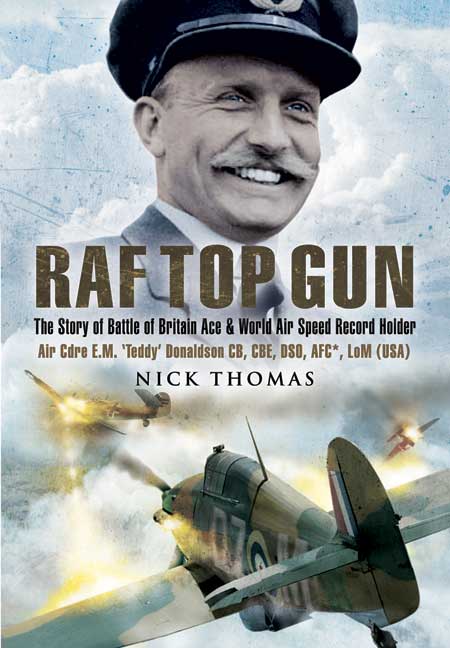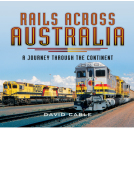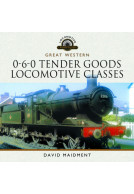Parry Thomas (Hardback)
The First Driver to be Killed in Pursuit of the Land Speed Record
Imprint: Pen & Sword Transport
Pages: 192
Illustrations: 16 black and white illustrations
ISBN: 9781526759221
Published: 7th August 2019
(click here for international delivery rates)
Order within the next 7 hours, 34 minutes to get your order processed the next working day!
Need a currency converter? Check XE.com for live rates
| Other formats available - Buy the Hardback and get the eBook for free! | Price |
|---|---|
| Parry Thomas eBook (19.6 MB) Add to Basket | £7.99 |
John Godfrey Parry Thomas – J.G Thomas – was by any standards an extraordinary man, in both life and in his tragic death. From a conventional upbringing as the son of the curate of Rhosddu in Wales, having been born in April 1884, he became a prominent figure in the developing world of high-speed motor car racing and design.
In time, Thomas became the chief engineer at Leyland Motors, a company whose main products were commercial vehicles. But J.G. Thomas was more interested in swifter vehicles and in 1920, along with his assistant Reid Railton, he designed the Leyland Eight, a luxury car which bristled with novel features, such as torsion springs, anti-roll bars and vacuum-assisted brakes.
It was the experience of driving this car around the race track at Brooklands that persuaded Thomas to give up his career with Leyland to become a fulltime motor-racing driver and engineer. With the Leyland Eight, Thomas achieved some success, winning thirty-eight races in five seasons and setting numerous records, including the ten mile record at 114.84 mph, and, in 1924, a new lap record of 132.5 mph at Montlhéry.
Thomas continued to develop ever-faster cars and eventually he turned his attention to the land speed record. He acquired the 27-litre Liberty engine powered Higham ‘Special’ and, after re-modelling it and re-naming it Babs, he achieved a speed of more than 170 mph at Pendine Sands, Wales, on 28 April 1926. In so doing, he broke Colin Campbell’s record by almost 20 mph.
The following year, Campbell re-took the record, which drove Thomas to attempt to regain his title, once again at Pendine Sands. Sadly, on 3 March 1927, Babs crashed, and Thomas was killed. Thomas was buried at Byfleet in Surrey, whilst Babs was interred in the dunes at Pendine Sands.
What a man and what a wonderful tribute this book is to him.
Vintage Airfix
Read the Full Review Here
As featured by
Brooklands Bulletin, March-April 2020
As featured by
Austro Classic, 6/2019
"This welcome re-publication outlines the achievements of one the pioneer drivers seeking speed records in the early 20th century."
Road Transport History Association
Review by
Hugh Tours's extraordinary examination of the life of John Godfrey Parry Thomas, and his death in pursuit of the land speed record - fascinating.
Books Monthly
Hugh Tours presents an in-depth and deeply thought-provoking walk through the life and times of the late great and often difficult Welshman, ‘Parry Thomas‘. Describing in great detail Thomas’s engineering background, racing prowess, dancing and even sporting achievements.
Classic Car Curation
Read the full review here
About Hugh Tours
Born in Chiswick on 15 July 1910, HUGH BERTHOLD TOURS was educated at Aldenham. From early on his great interests were engineering and steam railways. A career with the Bank of England was interrupted in 1939 when Hugh enlisted in the Royal Navy as an Ordinary Seaman. He rose to the rank of Lieutenant RNVR, serving as a Gunnery Officer in the Far East as well as on the Russian Convoys – he was involved in the events surrounding Convoy PQ-17 as a member of the crew of HMS Norfolk. After the war ended Hugh returned to the Bank of England, where he started his literary career writing articles on cars that he tested for the Bank of England magazine. In his last few years with The Old Lady of Thread Needle Street Hugh was asked to delve into the Bank’s archives and to create an internal museum.
Edward 'Teddy' Mortlock Donaldson was one of three aviator brothers to win the DSO during World War II. He joined his brother in the RAF and was granted a sort-service commission. He quickly became both a stunt pilot and a crack-shot, winning the RAF's Gunnery Trophy One and leading the RAF's aerobatic display team. When war was declared Donaldson was commanding No 151(F) Squadron flying Hurricanes and in their first engagement destroyed six enemy aircraft, shooting down many more in the following months. For his leadership of the squadron during the battle and his personal tally of eleven, plus…
By Nick ThomasClick here to buy both titles for £35.98

















